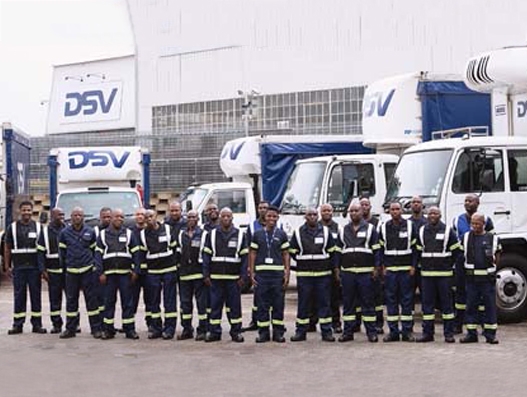
DSV's board of directors visit South Africa
Feb 21, 2017: While South Africa's poorest, chronically ill residents of Western Cape could previously have medicine dispensed at 250 different sites in the province, there are now more than 1,000 different dispensing sites in the area. Churches, shelters, community centers and soup kitchens provide facilities for the dispensing of medicine, which

Feb 21, 2017: While South Africa's poorest, chronically ill residents of Western Cape could previously have medicine dispensed at 250 different sites in the province, there are now more than 1,000 different dispensing sites in the area. Churches, shelters, community centers and soup kitchens provide facilities for the dispensing of medicine, which means that far more residents now have easy, natural access to vital prescription drugs from the public health service.
It's an impressive operation. With more than 1,000 dispensing points, we make sure that the most disadvantaged members of society actually get their medicine for the treatment of HIV, cancer, diabetes, etc. The target group is difficult to reach, unless you make a persevering effort to meet them where they live. And this has actually succeeded beyond all expectations, says Kurt Larsen, chairman of DSV's board of directors, who just returned from a visit to South Africa along with a handful of other board members.
In addition to the ordinary transactions of Air & Sea, Road and Solutions, most of DSV's South African business involved the distribution of medicine. It is done from ultra-modern facilities in both Cape Town and Johannesburg. The company represents 40 different pharmaceutical and healthcare companies and daily supplies the country's hospitals, clinics, medical centers, pharmacies and wholesalers with pharmaceutical products, equating to more than half of the country's total consumption of medicine. Another department is responsible for delivering schoolbooks to children, while DSV Mounties make sure that payment cards and other securities do not end up in the wrong hands on their way to the recipients.
There is a social dimension to our South African business activities that we don't see elsewhere, and it is satisfying to us, says Robert Kledal, DSV board member.
Birgit W. Nørgaard, also a DSV board member says, South Africa does not have a very well-developed postal infrastructure. This yields different tasks, and the direct distribution of medicine has saved lots of time for both patients and clinical staff who can spend their time on other sick people, which is why it has had a positive impact on lots of people, she says, adding that the business model cannot be directly copied by others, "The distribution of medicine to end users requires major investments in equipment and IT systems, which can be an obstacle to the competition, so we are strongly positioned in South Africa."
The fact that they have adapted to DSV so quickly made a great impression on all of us. It is highly consistent and this is a powerful signal. It shows excellent commitment and also the fact that they really want to identify with DSV, says Thomas Plenborg, DSV board member.
Keith Pienaar, CEO of DSV South Africa, says, Like any other change of such dimensions, it has had its share of challenges. Nevertheless, the system's simplicity and the transparency it has given to the business almost overnight have generated enormous enthusiasm among both customers and staff.
DSV has given us free rein to do what is necessary for our region. We realise that we are part of a global organisation, and we appreciate this, but we are also pleased to have the opportunity to make the necessary decisions at local level. This freedom also requires us to take more responsibility, Keith Pienaar says, stating that he has experienced "unparalleled" interest from DSV around the world.
Europe, and Germany in particular, is South Africa's second largest trade partner. Therefore, it goes without saying that our new footprint and strength in Europe paves the way for new opportunities with customers who we previously didn't have access to at the same time that it supports our existing customer base, particularly in the automotive industry, he says.
Even if South Africa is financially challenged in the short term by a crisis in the all-powerful mining industry, Birgit W. Nørgaard believes that "new political winds" could result in a more efficient form of government in the individual regions. This would benefit the economy and generate new prospects for the business community.
And there are also those who think that Africa will be the center of the world's next high-growth economy. Indeed, South Africa has been a member of the BRICS group of high-growth countries since 2010, although the definition has changed in recent years from "high-growth countries" to "countries with the potential for high growth". According to Kurt Larsen, "It is a good idea to be prepared to seize the opportunities that the future might bring, however. We now have lots of eyes and ears on the continent. This gives us a stepping stone for taking part in developments that would otherwise have been difficult to keep up with."

